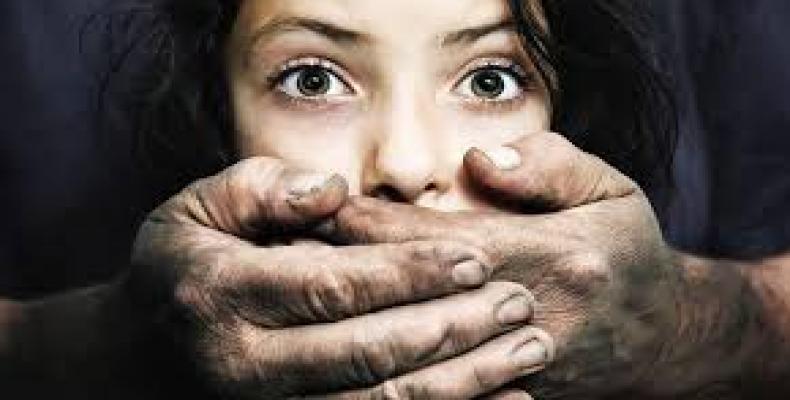United Nations, November 29 (RHC)-- Gender violence is among the most widespread and ravaging human rights violations in the world, the United Nations recalled as the International Day for the Elimination of Violence Against Women was commemorated earlier this week.
One-third of all women and girls suffer physical or sexual violence during their life, while 50 percent of the women killed across the world were murdered by their partners or family members, the UN said, adding that violence endured by women is as common a cause of death as cancer.
Gender-based violence is such a rampant and global issue that it means “someone around you. A family member, a co-worker, a friend, or even yourself has experienced this type of abuse,” U.N. Secretary-General Antonio Guterres said in his speech to mark the day.
“Sexual violence against women and girls is rooted in centuries of male domination,” he added, reminding the world that stigma, misconceptions, under-reporting and poor enforcement of laws perpetuate impunity in rape cases.
Intimate partner violence (battering, psychological abuse, marital rape, femicide); sexual violence and harassment (rape, forced sexual acts, unwanted sexual advances, child sexual abuse, forced marriage, street harassment, stalking, cyber- harassment); human trafficking (slavery, sexual exploitation); female genital mutilation; child marriage are among the many ways and forms in which the plague of violence against women and girls manifests itself, according to the organization.
Among the different types of violence and, the issue of rape is a specific concern and a particular form of harm. UN Women’s Executive Director Phumzile Mlambo-Ngcuka said the end of the horrendous act would mean eliminating a “significant weapon of war from the arsenal of conflict.”
“Rape isn’t an isolated brief act. It damages flesh and reverberates in memory. It can have life-changing, unchosen results -- a pregnancy or a transmitted disease,” Mlambo-Ngcuka stressed, adding that consequences of a one-time act can sprawl into damaging long-term effects. “It’s long-lasting, devastating effects reach others: family, friends, partners, and colleagues,” she continued.
Starting Monday, and for the next two years, the U.N. chief’s UNiTe to End Violence against Women campaign will focus on this particular issue, encouraging people to join the initiative. Also, a study by the World Health Organization (WHO), exposed the devastating consequences of violence on women’s physical, sexual, reproductive and mental health.
Physical and sexual abuse doubles the probability for women to have an abortion as well as their likelihood to fall into depression. In some parts of the world, they are 1.5 times more likely to acquire HIV, and evidence exists that sexually assaulted women are 2.3 times more likely to have alcohol disorders, according to the organization.
Around 65 percent of women in some parts of sub-Saharan Africa, and around 40 percent of women in South Asia, as well as Andean parts of Latin America experience partner violence multi-country investigations by WHO revealed.
In Mexico for instance, 10 women are killed on average every day, which makes the country one of the most dangerous places in the world to be a woman, while the perpetrators enjoy impunity as only one in 10 murders are resolved.
Meanwhile, even in regions where incidents are less likely, as, in East Asia and Western Europe, more than 16 percent and 19 percent of women have experienced intimate partner violence, respectively.
Women who identify with the LGBTI community, migrants and refugees, indigenous minorities, and those living through humanitarian crises, are particularly vulnerable to gender-based harm.
“Almost universally, most perpetrators of rape go unreported or unpunished”, Mlambo-Ngcuka explained. “For women to report in the first place requires a great deal of resilience to re-live the attack…In many countries, women know that they are overwhelmingly more likely to be blamed than believed.”
The effects of such violations suppress voices and traumatize, at “an intolerable cost to society,” said Mlambo-Ngcuka. “No further generations must struggle to cope with a legacy of violation.”


